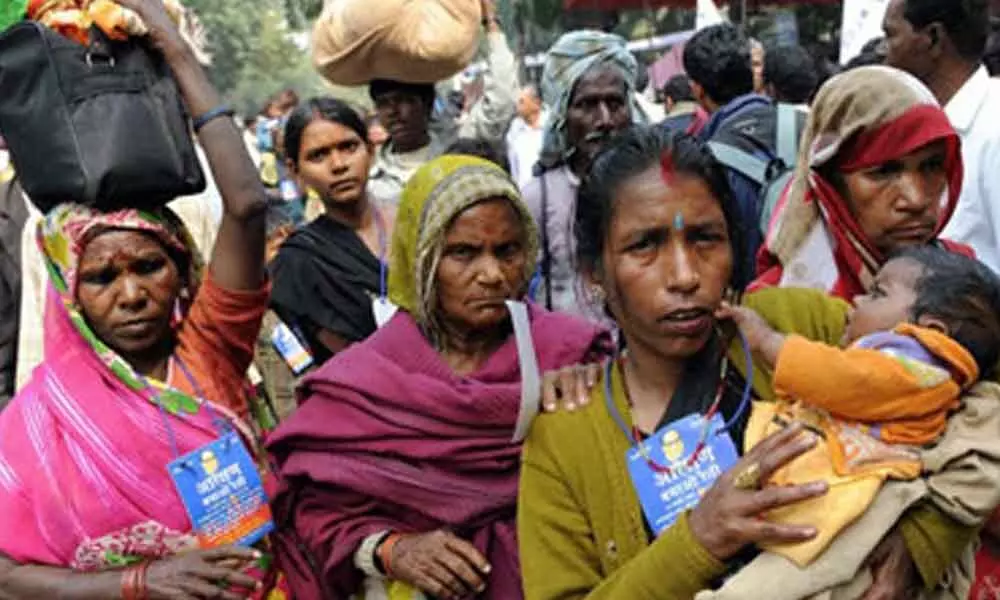Context:
Recently, a debate over the religious classification of India’s Adivasi people took place in the Lok Sabha during this Monsoon Session.
More on the news
- The law minister (state) stated that Adivasis were included as persons professing the Hindu religion in the Protection of Civil Rights Act of 1955.
- Adivasi movements in Jharkhand, Odisha, Rajasthan, and elsewhere have been demanding that their indigenous religion of Sarna be recognized (they argue that their worship is distinct from Hinduism).
Protection of Civil Rights Act, 1955
- In pursuance of Article 17 of the Constitution of India, the Untouchability (Offences) Act, 1955 was enacted. Subsequently, it was amended and renamed in the year 1976 as the “Protection of Civil Rights Act, 1955”.
- Sections 3 – 7A of the Act define the following as offenses if committed on the ground of “untouchability”
- In this act “civil rights” means any right accruing to a person because of the abolition of “untouchability” by article 17 of the Constitution.
- Section 3 Punishment for enforcing religious disabilities:
- (a) from entering any place of public worship that is open to other persons professing the same religion.
- (b) from worshipping or offering prayers or performing any religious service in any place of public worship.
- Violation of the above section shall be punishable with imprisonment for a term of not less than one month and not more than six months and also with a fine which shall be not less than one hundred rupees and not more than five hundred rupees.
- For section 3 and section 4 persons professing the Buddhist, Sikh, or Jaina religion or persons professing the Hindu religion in any of its forms or developments including Virashaivas, Lingayats, Adivasis, followers of Brahmo, Prarthana, Arya Samaj and the Swaminarayan (Sahajanand Swami) Sampraday shall be deemed to be Hindus.
- Section 15A(2)(iii) of the act, provides for the setting up of special courts for trial of offences under the Act.
Government Initiative
- To ensure effective implementation of Article 17, central assistance is provided under the Centrally Sponsored Scheme for implementation of the Protection of Civil Rights Act, 1955, and the Scheduled Castes and the Scheduled Tribes (Prevention of Atrocities) Act, 1989. Provisions of these acts are as follows: –
- Functioning and strengthening of the Scheduled Castes and Scheduled Tribes Protection Cell and Special Police Stations.
- Setting up and functioning of exclusive Special Courts.
- Relief and Rehabilitation of atrocity victims.
- Cash incentive for Inter-Caste Marriages.
- Awareness generation.

